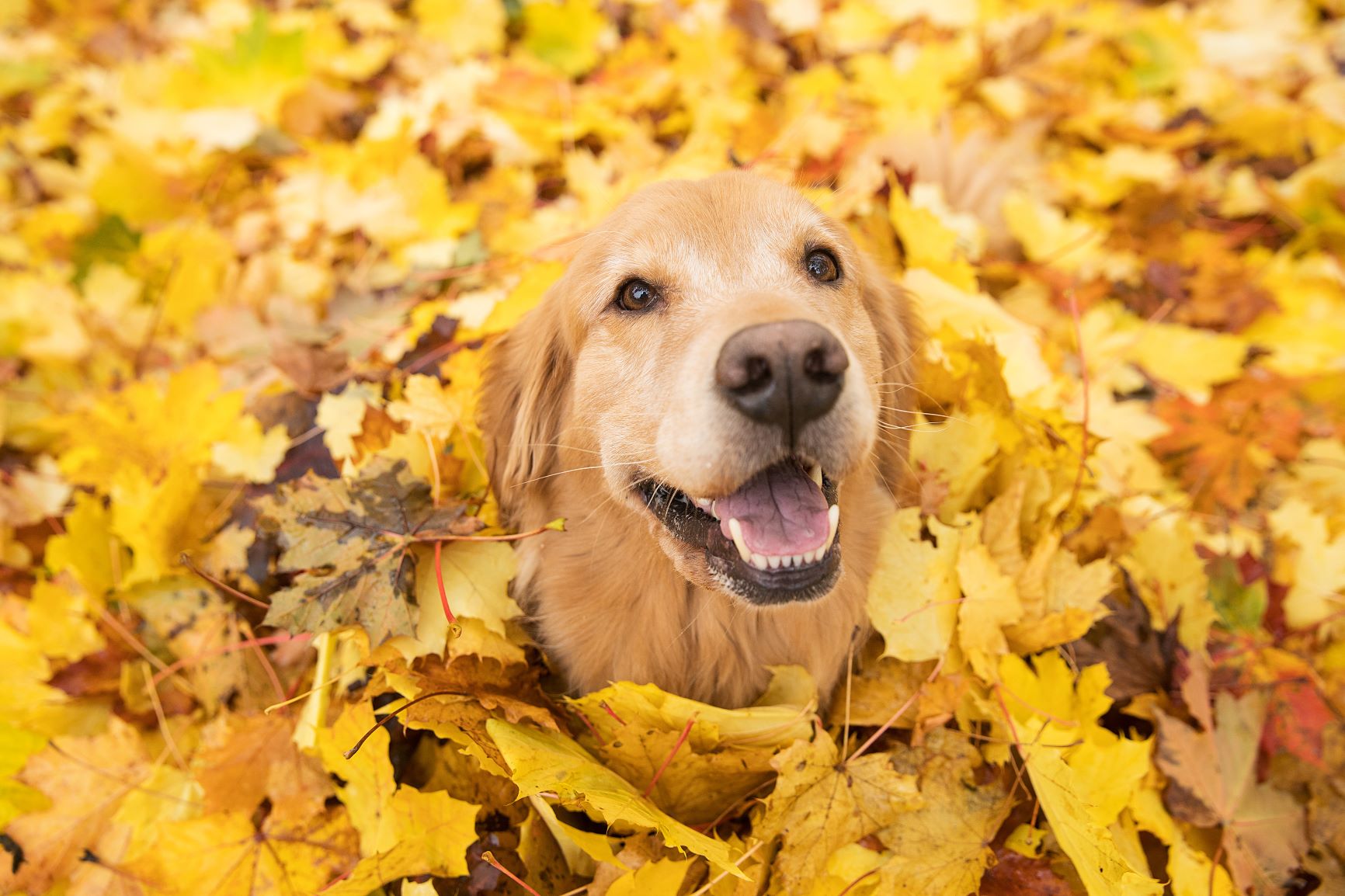Autumn has arrived, the nights are drawing in and whilst we shelter in our warm houses, the wildlife outside your window slowly changes. Mushrooms start sprouting whilst leaves, apples, conkers and acorns start falling off the rusty trees. Mice and hedgehogs seek warm hideaways, many seasonal changes can affect your pets, and you ought to be aware of any dangers your pet could be exposed to during the months to come.
Toxic Substances
Whilst autumn is a beautiful season, many of the unique seasonal occurrences can be very dangerous for your pets.
Did you know that acorns, conkers and rotten apples are all highly toxic to cats and dogs? These tasty treats are for squirrels and other wild mammals only. Some types of mushrooms are also poisonous if eaten by pets. It is a good idea to check your garden for these tempting things and keep an eye on your dog when you take them out for a walk.
Products we use to help us through the colder months may be harmful to your pets, for example; Slug pellets are poisonous to pets. If consumed it may cause fitting, vomiting, diarrhoea, panting, unsteady walking, hypothermia and many other symptoms. If your pet shows any of these signs take your pet to The Vet, don’t forget no appointment is needed so visit immediately!
You may wish to use rat poison to keep rodents well away from your house. However, mice and rats aren’t the only ones who are adversely affected by rat poison and traps. Even if your own pet can’t access any rodent preventatives you have put down, please be aware of the safety of your neighbour’s pets.
Parasites
The change in temperature and short days means that fleas and ticks will seek a warmer environment, and you may find they seek residency in your cosy home or on your snuggly pet. Make sure you use flea and tick control and regularly check your pet’s coat. Don’t forget that The Vet offers free flea and worm checks, if you’re not sure. It’s important to not only check and treat your pets, but to treat your home, especially near your pet’s favourite relaxation spots.
Orange harvest mites are another parasite which are especially prevalent in autumn. Your pet can pick them up wandering through long grasses. They will create intense itchy, uncomfortable crusty patches of skin on your pet, so keep an eye out and take them to The Vet if you notice any problems.
Vulnerable Wildlife
Hedgehogs
Hedgehogs seem to be around much more in autumn; this is because they are readying themselves for their winter hibernation, foraging for nuts, insects and fruit. If you have a hedgehog residing in your garden, take note of when you see them, as they will most likely resurface at the same time every day. During this time, try and keep your own pet away from them; this will leave the hedgehogs in peace to forage for winter, and will keep your pet safe from some of the parasites the hedgehog may be carrying. It is estimated that approximately 25% of hedgehogs carry ringworm that can infect dogs and cats and even humans. Hedgehogs also commonly have fleas, if your pet strays too close, it may bring back some unwanted parasites. Lastly, before you light a bonfire, try and scare any hedgehogs away who may have sheltered inside your heap of leaves. You can do this by shining a torch into the bonfire and listening out for a hissing noise – this is the noise that hedgehogs make when they feel threatened.
Wild Birds
The colder months are a harsh time for birds who don’t migrate south. It is helpful to leave food and fresh water out for the wild birds, and if you have a cat, to make sure bird feeders are well out of reach. Ideally your cat should have a bell on their collar to warn the birds of their approach, and bird feeders should be placed in an open area so they can see any predators coming their way.
It is important to be wary of all animal’s needs during the colder seasons, our pets are dependent on us, and we also need to look out for those animals who don’t have anyone to take care of them.





